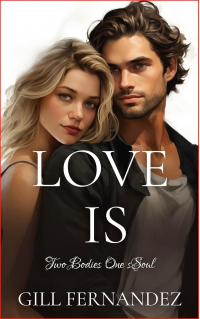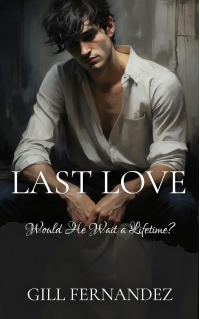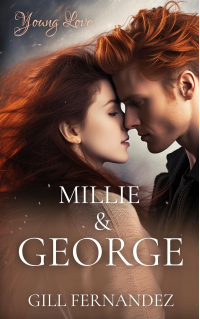Gill Fernandez Interview Published on: 30, Sep 2022
 Having spent your childhood in Sussex, where did you love to visit the most?
Having spent your childhood in Sussex, where did you love to visit the most?
Gosh! That's a really difficult question and I can't give you a single answer. The Sussex coast, which is varied and beautiful, includes tall white chalk cliffs and winding estuaries. The beaches, some long stretches of golden sand, backed by dunes with spiky Maran grass, others like the ones at Worthing and Brighton bare feet challenging pebbles where when the sea was calm my father taught me to skim flat stones. At Brighton there once were two Victorian piers (now only one) and near its entrance an aquarium, (also Victorian) which used to be my favourite place to go when I was a little child. The coast alone provides an enormous variety of different scenery and experiences to fit any mood. But then there is inland! Tall ancient chalk hills, known as the South Downs, with sites of historical and geographical interest where you can see for miles and miles. The Downs separate the coastal plain from the Sussex weald, which is a land of forests, farms, castles, lakes and rivers. So much to experience in my home county, is it a wonder I cannot decide on one single location?
Do you remember the first book you ever read? What type of books did you often pick up from the adult fiction section of the library?Second hard question! I'm fairly ancient, so remembering the very first book is a challenge. I had all the children's books at the time, and as a horse-mad little girl I think Black Beauty by Anna Sewell had a big impact. Like now, my reading tastes were varied. I remember finding George Orwell when I was in my early teens and around the same time I was enjoying Arthur C. Clarke, Edgar Allen Poe, Dickens and Daphne Du Maurier. Quite a variety!
Why did you choose the romance genre?It chose me by a quirk of fate. I was an only child, and spent a significant amount of time creating fiction, not always written down, but played out in mini-dramas with a supporting cast of stuffed toys. Looking back, I had a taste for gothic and my heroes were always troubled, with dreadful things happening to them. When it came to my teens I wanted initially to go into journalism. I thought it would be a way, for a girl from a quite sheltered background, to learn about the real world and hone her writing skills in preparation for the great novel! Unfortunately my father was having none of it. He did not consider journalism a suitable career for a young girl. Having refused one 'unsuitable' career, it was less difficult to persuade my parents, who were both a bit stagestruck, to allow me to become an actress and that is what I did for the first seven years of my working life. But I hadn't totally given up on writing and spent my fr ee time scribbling, short stories, plays, poems, novellas, children's stories. You name it and I had a go, but didn't do anything much with the work. It was a long apprenticeship. Scroll forward a few years and my father was watching the Boon brothers from Mills & Boon being interviewed on an early evening chat show. They were, apparently, asking for manuscript submissions . We are somewhere in the mid to late nineteen eighties now, and I think maybe my father regretted his earlier decision about my career, and suggested I should have a go at writing something for Mills & Boon. Cutting a long story short, including massive research (I'd never read a Mills & Boon), a lot of typing, on a Silver Reed portable typewriter and by the end of the summer I had actually sent two manuscripts to the publisher. Both got as far as the editorial director, which I was once told was a good thing, but sadly both received a kind refusal. Doubts began to sneak in! Perhaps I wasn't good enough. I couldn't face doing another seventy-two thousand words, only to receive a 'nearly but not quite right' reply. I was on the brink of giving up. But I suddenly had the idea of writing a short story for a magazine. I figured the time and investment in a short story was less than a novel so refusals would not be so devastating, and if after say ten attempts, I was still being declined. I'd have my answer to the question. Was I good enough? I chose a slice of life type story, aimed at female readers, and found a magazine that it seemed to suit, and sent it off. It was accepted! All through the remaining decade I wrote various forms of women's fiction, alongside a day job. Until real life problems stopped me from writing for magazines. An elderly dad, and a young son, not to mention a mortgage to pay and a feckless ex-husband, led to me changing jobs. Put bluntly I needed to earn more or go under. But the new job came at a price - no more time for writing. So it was not until 2001 and redundancy from that almost all consuming job, that I was able to turn back to writing. I decided to try again at full length novels; toyed with the idea of crime fiction but decided I had more experience in women's fiction - so that was how I finally settled on romance. (Sorry, that answer was a bit lengthy!)
How do you balance romance and history, conflict and emotion in your books?It's not always easy. The love story has to be the centre of a romance, the main theme! I have a tendency to wander off adding sub-themes, and sometimes have to pull myself back to the central theme, to prevent the book becoming unbalanced. History, conflict and emotion I try to weave through the story of the romance using the main character's thoughts, actions and reactions.
What inspired the story of Sam and Georgie in "Love Me: Just a Summer Affair?"?A mixture of things inspired "Love Me". I wanted to write a love story with as many of the romance tropes as possible and still have the scope to show how much the world has changed in slightly over fifty years. In 1969 (when the story begins) the "me too" movement was not even a twinkle in someone's eye. Women's rights, gender equality and equal opportunities were a distant dream (and for some, unfortunately, they still are) but back at the end of the sixties, when the UK was vibrant, buzzing with the new; from mini skirts to mini cars, change was in the air. So the time period was definitely the inspiration. What better time to set a steamy romance than at the end of the swinging sixties? Then came the setting. The theatre was my obvious choice. Because of my own early career in the theatre, and it gave me lots of background detail. While the main characters are totally fictional, there are a few facts woven into the story.
What is the most difficult thing about writing Historical Romance?You might be expecting me to say the research. But that is not my answer. I enjoy the research. It's treasure waiting to be found. Fact checking can lead to uncovering even more interesting things. Things that can drive the plot on and give the story more depth. There is at least one such "interesting thing" used in "Love Me".
So, to answer your question, I think the most difficult thing is getting the voices right. Just as fashions and social attitudes change, people's speech patterns also evolve. Although, getting character voice right is important in all fiction writing, if you get it wrong in historical work it is more likely to be noticed and irritate the reader.
I've just finished reading "An Ordinary Life" by Amanda Prowse which starts in 2019 and then shoots back to 1943, and she gets each character's voice spot on for the time period and their social class.
How did you get started with the Six Degrees of Separation series? What is the future of the relationship between Millie & George?Ah good, back on home territory. You've probably heard of the six degrees theory, and I have experienced it in reality a few times, where meeting someone new it turns out that we have a connection. From there I began to think it might be an interesting baseline for a series. If I'd known then how complicated it was going to get keeping the connected characters in order, I might not have started it! "Millie & George - Young Love", is set in 2001 when both characters are at the start of their adult lives. It is an HEA romance and in book two of the series ("Love Is - Two Bodies One Soul") you see them again fifteen years later - still in love.
What was the inspiration of the story, "Love Me: Just a Summer Affair??"As I mentioned earlier, my first career was in the theatre, and I decided it would be a waste not to use that experience. "Love Me", which by the way is not part of the six degrees series, starts off in 1969 (the end of the decade of free love) and is set in the theatre world. A time and a period rich in material for a romance.
What is the theme of Six Degrees of Separation series? How many more books are you planning to add to this series?The theme of the series is unknown connections and the surprises they can bring when they are discovered. The two books published so far, "Millie & George" and "Love Is" have at their heart (no pun intended) the redemptive power of love. The final book in the series "Last Love - It's Never too Late" wraps up all the connections and is a second chance romance. I don't have plans for any more books in this series because I have a major project that has already been delayed to allow for this series.
Which location did you choose to set your first novel in?Tricky to answer because it depends on what you mean. If you mean the first published novel, then it was Sussex. That book is no longer available. Technically speaking, "Love Me" set in a fictional town in Yorkshire, plus London, Sussex and Cornwall could fit in the first slot because the first draft for it was written before "Millie & George", but if you mean "Millie & George" the main location is London, with a few scenes outside London.
Writing and finishing a book can take an immense amount of discipline. How do you keep yourself motivated and keep the dreaded writer's block from attacking?I write nearly every day. It's like an addiction. If I'm not writing I feel like something is missing. Even if I'm stuck on a section, I still write. I might experiment a bit. Try the scene from a different POV or break and make something else happen.
How did you end up in beautiful Cornwall?My parents retired there and I moved down to be close to them when my marriage was falling apart.
Which genre of book do you think should be most adapted for kids in school? Is today’s generation more aware of the literary art or less?Now you've got me! I really can't say how literary aware today's generation might be, and I think it is dangerous to generalise on the subject. I've met young people who are avid readers and others who rarely pick up a book. As to which genre should be made available to school kids. I think probably most genres, but dependent on age. Clearly a Stephen King horror story would not be a great read for an eight year old, but having said that, I am reminded of Roald Dahl and other stories for children which were/are extremely grim. Just think of the story of Little Red Riding Hood!
Are you working on anything at the present you would like to share with your readers about?Yes. As already mentioned, the final book in the six degrees series, "Last Love" and once that is published, I shall be working on the first in a new series. The delayed major project. A mammoth task, as it is a family saga/historical and contemporary romance covering a timeline from 2018 back to 1169. No! I have not mistyped that. The series covers nearly a millennium, and I'm planning to work in approximately one hundred year sections, beginning with the first section in 1913 London and moving forward to 2018. The title of this first book in the series is "In Love and War". I even have the cover already designed.
What were some of the challenges you faced on the road to publication? How has been your experience working with AllAuthor?I think I've covered some of the challenges in my earlier answers. Perhaps this question is better answered by referring to the wealth of resources and opportunities (among them AllAuthor) now available to writers that simply were not there when I first started. Amazon was the first to open the market for self-publishing, shaking up the sleepy hollow of the trad industry and giving writers much needed control. We now have other routes to market and there is no reason why a writer with a good book to offer and prepared to put the work in cannot find their readers. In that respect AllAuthor is a brilliant resource for readers and writers alike.
Share Gill Fernandez's interview
Writer, reader, dog lover, and gardener, Gill Fernandez grew up in Sussex. Her first career was in the theatre. The first thing she ever published was a short story for a D.C. Thompson magazine called Red Letter. She has tried most things from children's books to erotica. Now, she writes romance and family sagas designed to pull on heartstrings. She currently lives in the romantic county of Cornwall.
 Love Is: Two Bodies One Soul (Six Degrees of Separation Book 2)
Genre: Contemporary Romance, Romance, Women's Fiction
Love Is: Two Bodies One Soul (Six Degrees of Separation Book 2)
Genre: Contemporary Romance, Romance, Women's Fiction
 Last Love: It's Never Too Late - a second chance romance (Six Degrees of Separation Book 3)
Genre: Contemporary Romance, Romance, Women's Fiction, Literary Fiction
Last Love: It's Never Too Late - a second chance romance (Six Degrees of Separation Book 3)
Genre: Contemporary Romance, Romance, Women's Fiction, Literary Fiction
 Millie & George: Young Love (Six Degrees of Separation Book 1)
Genre: New Adult Romance, Romance, Women's Fiction
Millie & George: Young Love (Six Degrees of Separation Book 1)
Genre: New Adult Romance, Romance, Women's Fiction


